My top 10 writing tips
Hola amigos!
I’ve been in Mexico writing my third book, and I feel called to share some tips that have worked for me as I’ve gotten ~in flow~.
There’s no way to trap or explain something as wild and feminine as creativity but there are some things we can do to coax and tame her into trusting us, and ensure that our bodies are receptive vessels for her to enter in.
Disclaimer: I failed the only writing class I ever took.
But if you’re like me and not a particularly good writer, just someone who needs to write in order to figure out what you’re thinking, then you might find a couple of these helpful:
1. Do squats
I don’t know about you, but when I’m writing, I forget that my body exists. I neglect my thirst, my hunger, and my bladder for the sake of focus. I just sit there deprived to the point of agony because I can’t find a suitable synonym for “pleasant,” and thus cannot complete the paragraph before I give myself the lavish treat of a bathroom break.
When I stand up from a stretch of concentration where my shoulders are hunched and my eyes burning, my back feels like it’s about to fall off and I can barely take a few steps forward.
If this sounds like you, may I suggest squats?
Those of us who sit a lot are in danger of weak glutes. Even if you’re not aiming to become a popular Instagram model, it’s still important to keep those things strong, for back comfort and hip mobility, primarily. (Your thirst traps, secondarily.)
I brought my favorite resistance bands to Mexico and used them for squats once an hour while writing. My back stayed pain-free and it felt so good to flush out all the tightness that comes with mucho sitting (even on a lounge chair surrounded by hibiscus flowers).
Creative work is physical, and it makes a world of difference when we creative creatures tend to our physical beings.
2. Write at a small desk
I can see many of you cringing at the idea of writing at a small desk if you’re the sprawler-outer type (and I love you for that!), but the kind of writing I do is quite intimate and I find it helpful to translate that intimacy to my space.
For this particular book, I frequently cried and got angry as I was writing. Somehow that feels shameful at a big office desk but totally appropriate at a cozy wooden surface whose petit-ness politely contained my large emotions with its narrow boundaries.
3. Write near others
Writing in cafes has always been my default because the alive-ness around me gives me a lot of energy. Watching people connect with each other reminds me why I’m doing in this in the first place—to bring myself closer into the world I inhabit.
A few years ago I realized that I’ll easily pick up the accent or cadence of the person I’m talking to, and I felt self-conscious about that: Am I pulling a Madonna?? Do they think I’m making fun of them?
Then I learned that it’s a sign of empathy to mimic the mannerisms of the person in front of you. I’ll take it!
In any case, when I’m trying to summon an emotion while writing, I look around and pick up on the feelings of others in order to channel a mood.
4. Write to a specific person
Technically, I can see the number of people who bought my book or read this newsletter, but it doesn’t register.
Whenever I get a response to what I’ve written, I snap into reality and realize that I haven’t been talking to myself this whole time.
That’s because, when I write, it’s always to one specific person in my life (my mom, 99% of the time).
When I don’t write with any specificity, my essay becomes a term paper. At the risk of making jokes that nobody will understand, I write so much more easily and clearly when I’m speaking to one person only, and I’m just delighted when others overhear it.
5. Forget logic
The joy of writing is that nothing has to make sense. This isn’t algebra; it’s a playground of words where a slide can become a pirate ship and the swingset is a castle.
Any word can mean anything, any meal can become the Eurcharist or Passover, any color can be a symbol, any person can be a character.
When you’re writing, you get to decide what’s sacred or not.
You’re the Pope of your story. This is unimportant, that is the most holy thing on earth. You make the rules when it comes to sacredness and meaning.
I will never forget the bro-y jock-type in college who wrote the phrase “a small earring of a man” in his writing assignment. What a perfect description, an earring of a man.
This is what you get to do when you write. You can call a human an earring, you can describe a city as an old woman, you can turn a noun into a verb and misuse an adverb if you want to.
2 + 2 = 800. Why not! You’re the magician who turns language inside out and spins reality upside-down.
This is writing: It’s creative and ridiculous. Most people won’t get it, but some people will.
How fun is that, finding your rare people, the ones who know exactly what you mean when a man is an earring??
6. Get your brain in rhythm
Whenever I begin writing, I get my brain in rhythm by reading one of my favorite writers. It’s like tuning a guitar or doing drills before playing a sport (this is where my sports knowledge ends); I need to get my mind and body in the spirit of writing before I begin.
It’s like looking at a photo of the finished product when you begin a recipe in a cookbook. You want to know where you’re headed—the idealized version of what you’re about to create. (Side note: Curses upon cookbooks that don’t have a photo with every recipe!!)
I start by gorging myself on Brian Doyle essays, leaving little appetite for anything else. But if I need extra emotional oomph, I’ll bathe in the poetic swamp of Hanif Abdurraqib’s work.
If I’m trying to lighten the mood, I look to Anne Lamott as I’m a poor student of her humor. When I’m attempting to spread my peacock feathers with spiritual writing, I’m totally hopeless without consulting the genius of Frederick Buechner and, at best, putting my own spin on his words.
It’s also been useful for me to cling on to one phrase from a favorite writer and expand upon that detail or visual.
Brian Doyle described a “cold, wet, Oregon night,” which is not groundbreaking by any means, but inspired me to describe a “cold, wet, Brooklyn” night in one of my chapters because I found it evocative, and an essay tumbled out from that single phrase.
7. Get out of your brain
Your ego is the enemy of your writing.
If you are writing something to make people feel a certain way, or see you in the best light, or consider you a genius, or look up to you, or (gulp) even acknowledge that you exist…that’s going to be a rough road.
There was a season where I let my ego take over my true reasons for writing and I was miserable beyond belief because it’s a game you can never win. When your ego is in competition with your soul, things get nasty and you begin believing crap that your soul is embarrassed by!
If you find yourself in sudden a tug-of-war between soul and ego, get outside of your brain.
Start helping others, ASAP.
Your writing is the teeny tiniest blip in the enormity of the universe’s infinite mysteries, and it’s healthy to recognize that fact before you realize you’ve been wearing the same clothes for six days and you haven’t looked up from a laptop screen in a week except to make more coffee.
While I was writing in Mexico, I made sure to do something beyond me every day.
Because I was writing about animals, I left out food and water for strays around my neighborhood:
Just continuing a trend that the locals started:
Even if you’re not writing about animals, connecting with other beings is important while you hyper-focus on a creative project.
We can all get so myopic and self-important about our work, and that makes for some very bleak writing. My best writing sprouts from communal soil rather than the dirt of an isolated flower pot.
8. Listen to the right music
I know that lo-fi beats have been all the rage for years, but they do nothing for me.
If I were doing calculus…sure.
But I really need music to jog my emotional memory and tug at gnarly feelings that I’d rather ignore while I’m trying to finish a chapter.
I so appreciate the psychic transition of one song to another when I’m stuck on one perspective and the following tune opens up a brand new angle that I hadn’t seen before. The opening of a few new notes will drop me into a new land and I can see the situation with rose-colored glasses or with the tint of twilight. It makes all the difference.
My go-to playlist isn’t lyric-free, but each song sprouts a different angle of a feeling.
9. Break your own heart
I can always tell when a writer is trying to evoke a certain emotion from me, so I rebel and hire a security guard to patrol my heart. I’m resistant to feeling anything when I’m face-to-face with someone who’s forcing me to feel something.
But when I can tell that a writer told this story in order to make their own tears fall—perhaps for the first time when it comes to this topic—I want to reach out and hug them beyond time and space, because I can almost see the wet drops on the page.
If you go into a new piece hoping to break the readers’ hearts, most likely you’re going to end up annoying them.
But if you go into a new piece expecting to break your own heart, then you’ll inevitably win yourself over in a paragraph or two.
Don’t try to make your reader laugh—try to make yourself laugh. Don’t try to make your reader cry—try to make yourself cry.
Readers are intuitive and know exactly what you’re doing, even if it’s subconscious. Nobody wants to be told what to feel, but they may follow your lead if they can tell that you’re fully feeling.
10. Surprise yourself
Speaking of which, here’s a good Frost quote to write by: “No tears in the writer, no tears in the reader. No surprise in the writer, no surprise in the reader.”
But how to surprise yourself as a writer?
My advice: Have no idea what you’re writing about.
As I was preparing to write my current book, I collected a long list of images, articles, observations, and facts.
None of them matched each other, so I would began with one idea and I started writing from there. If I was interested in it, then perhaps someone else would be interested in it, and I was curious why it had caught my attention.
Mark Doty once said that he didn’t write political poetry because writing was all about the process, the experience of exploration—not an opportunity to say something specific. That was a job for protest posters, not poetry.
My blandest, yuckiest writing comes when I have something to say.
My most spirit-filled, what-the-heck-did-I-just-write essays come from “This seems interesting, but I don’t know why.”
That’s why I’ve been so loosey-goosey with this newsletter in terms of timing and theme, because I write so much better when I follow a thought than when I command it to follow me.
Don’t get it twisted: I would kill to be a Jia Tolentino who can write on a particular topic with innovation, wit, and illumination. (Real talk—she’s one of my top 5 “trigger writers” who I am debilitatingly jealous of!!)
But that’s just not my skill set. My skill set (if you can call it such a thing) is wandering around, noticing weird or wonderful things that come into view while lost on an adventure.
I don’t like traveling to cities that are so well-worn and discovered that my to-do list is just a bunch of places that others have approved as hidden gems. When I travel, I like to play hide-and-seek with gems yet-to-be found, places that would never shine on an Instagram photo, yet provide a special and strange experience that I’ll remember for years.
It’s tempting to write on topics that come with a script, but I write the way I travel—I’m here to discover. I’m not here to trod on a well-worn path but to make my own and see what I find there.
In all honesty, what I usually find is nothing to write home about, but at least it’s mine.
And if you’re embarking on a creative act of some sort today, I would rather see where your own discovery takes you, rather than see the same finished product that I’ve been sold a thousand times.
Be weird, be incomprehensible, be spooky, be strange, be the you that you learned how to quiet down a long time ago. I want to read that version of you!
And I tell this to myself, as I make wild connections between humans and animals for my next book. It might not be anything to write home about, but it will be mine!
P.S. I have two writing retreats coming up this year!
MAY 17-19, NORTH CAROLINA
I am thrilled to return to the beautiful Art of Living Retreat Center tucked in the mountains for another special soulful weekend of writing and art-making, this time around the theme of Your Sacred Story: Transform Your Life Experiences Into Writing & Art.
JUNE 16-21, WYOMING
At a ranch under a canyon, we’ll stay in luxury glamping tents, eat beautiful local food prepared by a local chef, ride horses out to canyons with CAVE DRAWINGS IN THEM, and, oh yeah, write and make art!! With such otherworldly surroundings, We’ll be writing and making art on the theme of PLACE. Space is limited to 10 attendees for super-special-ness.


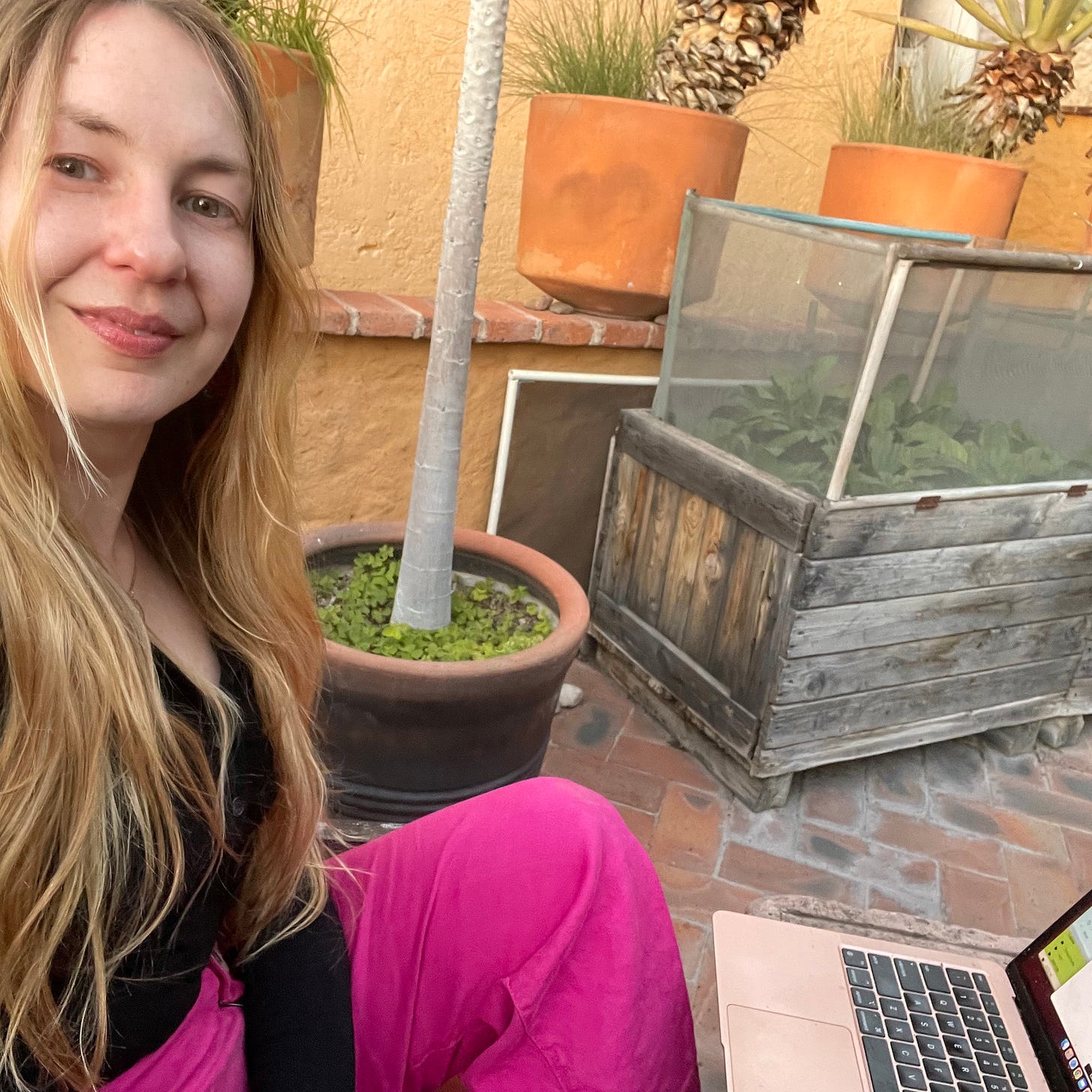
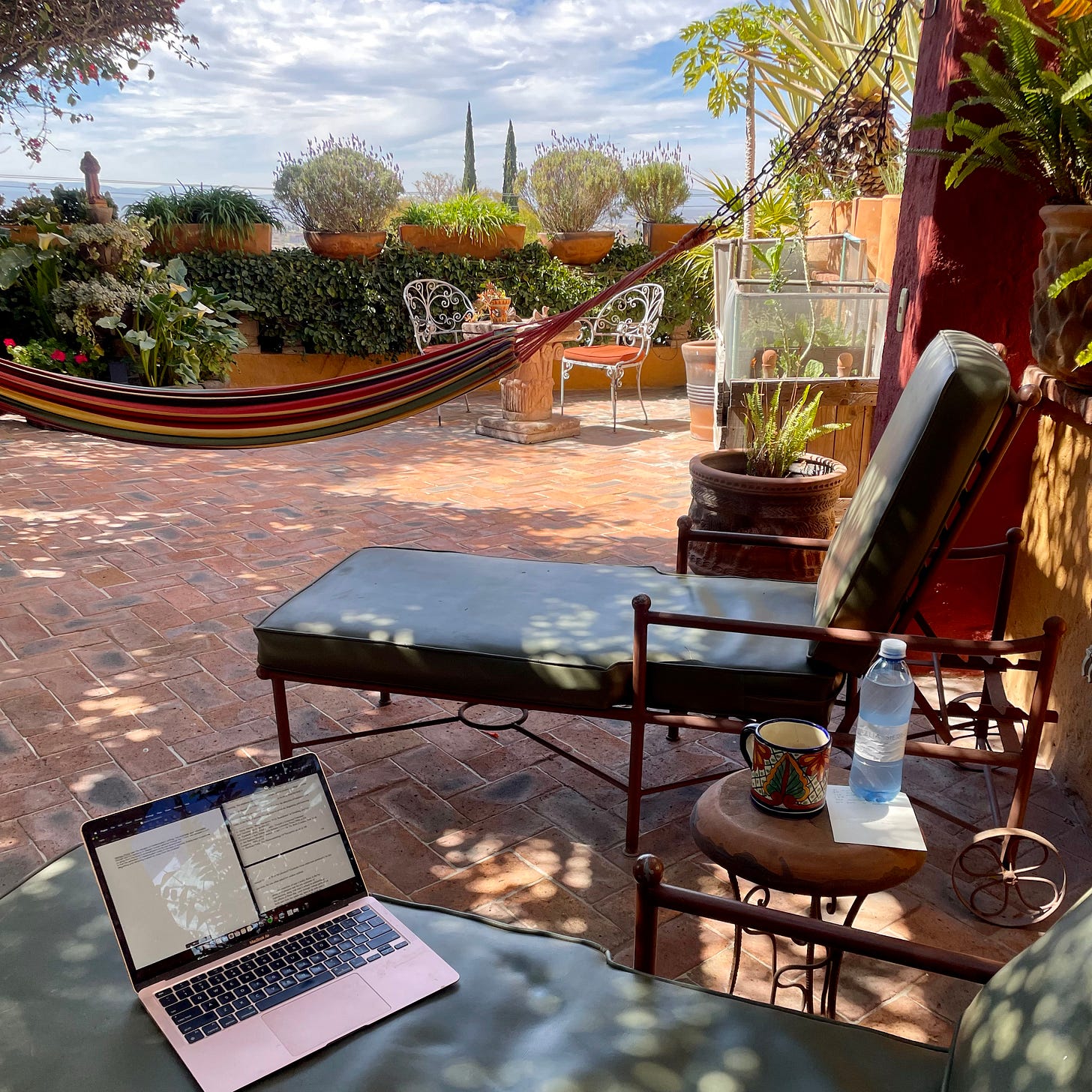
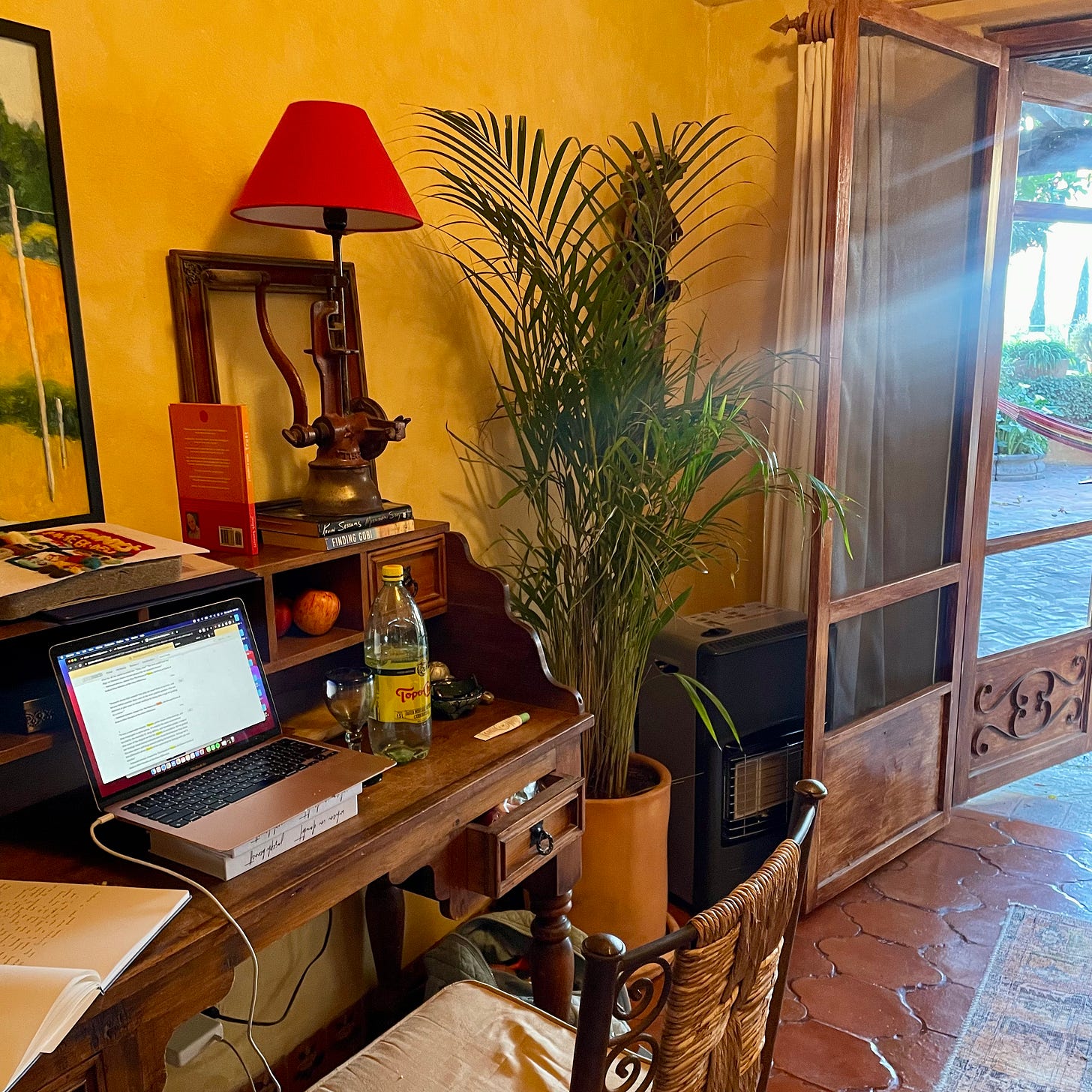
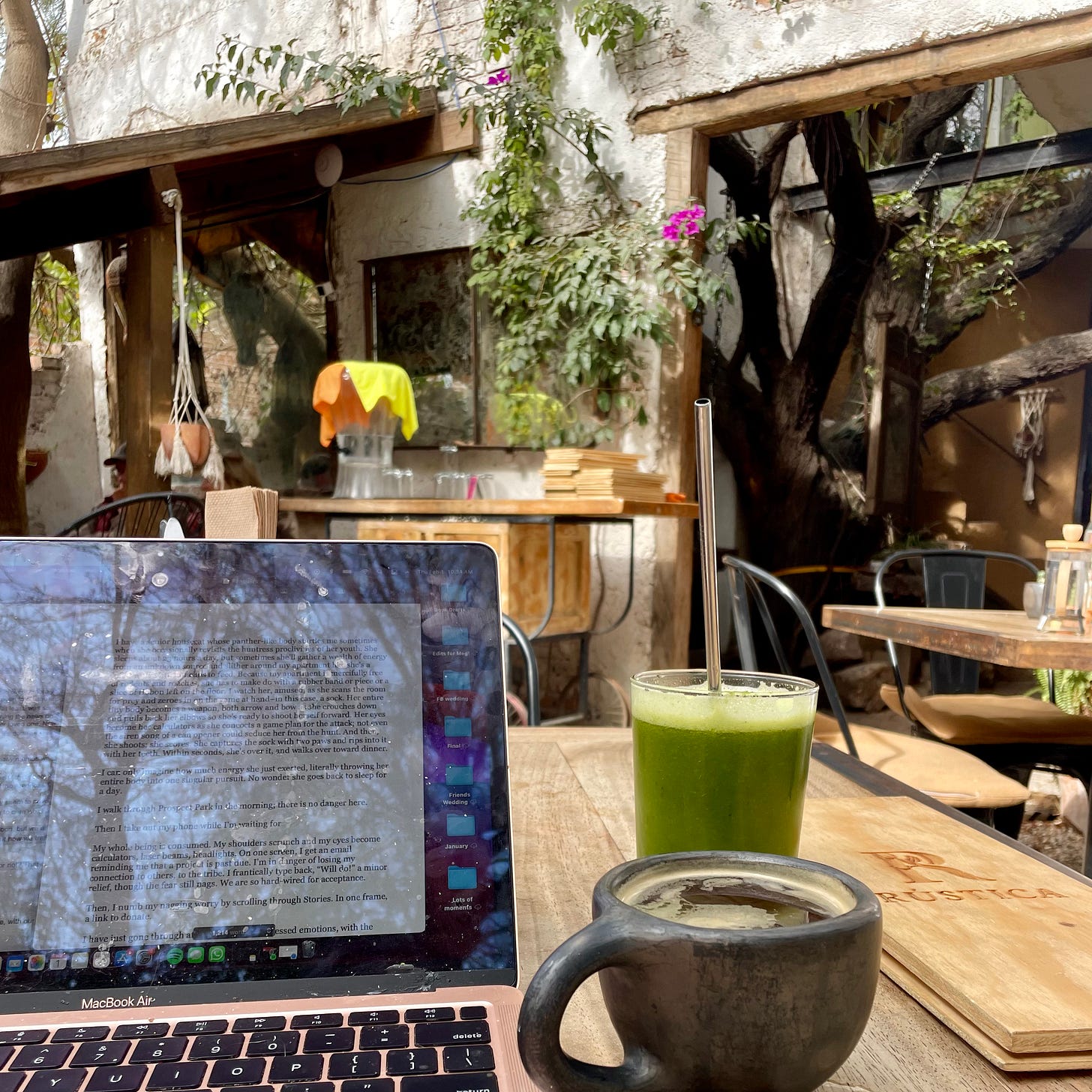
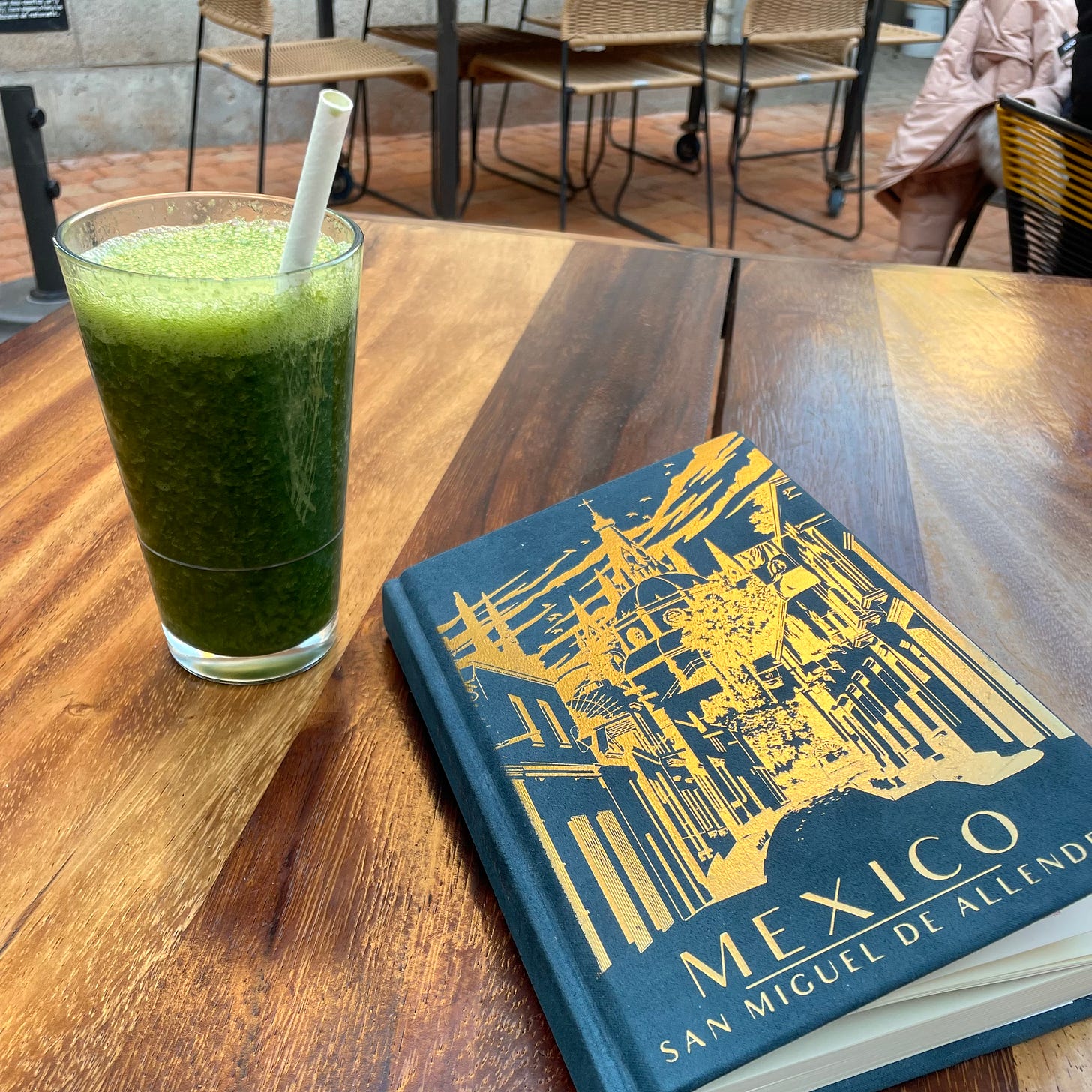
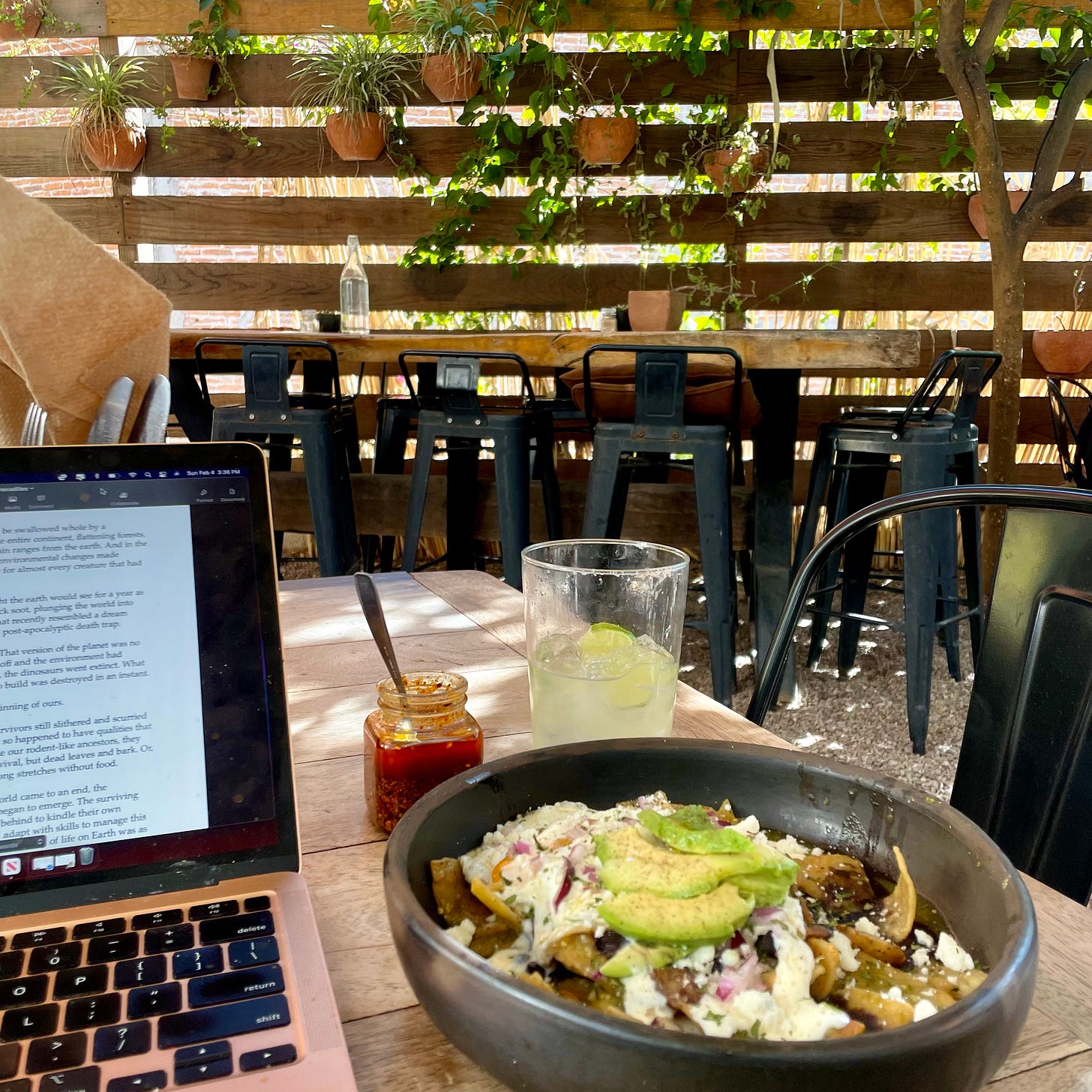

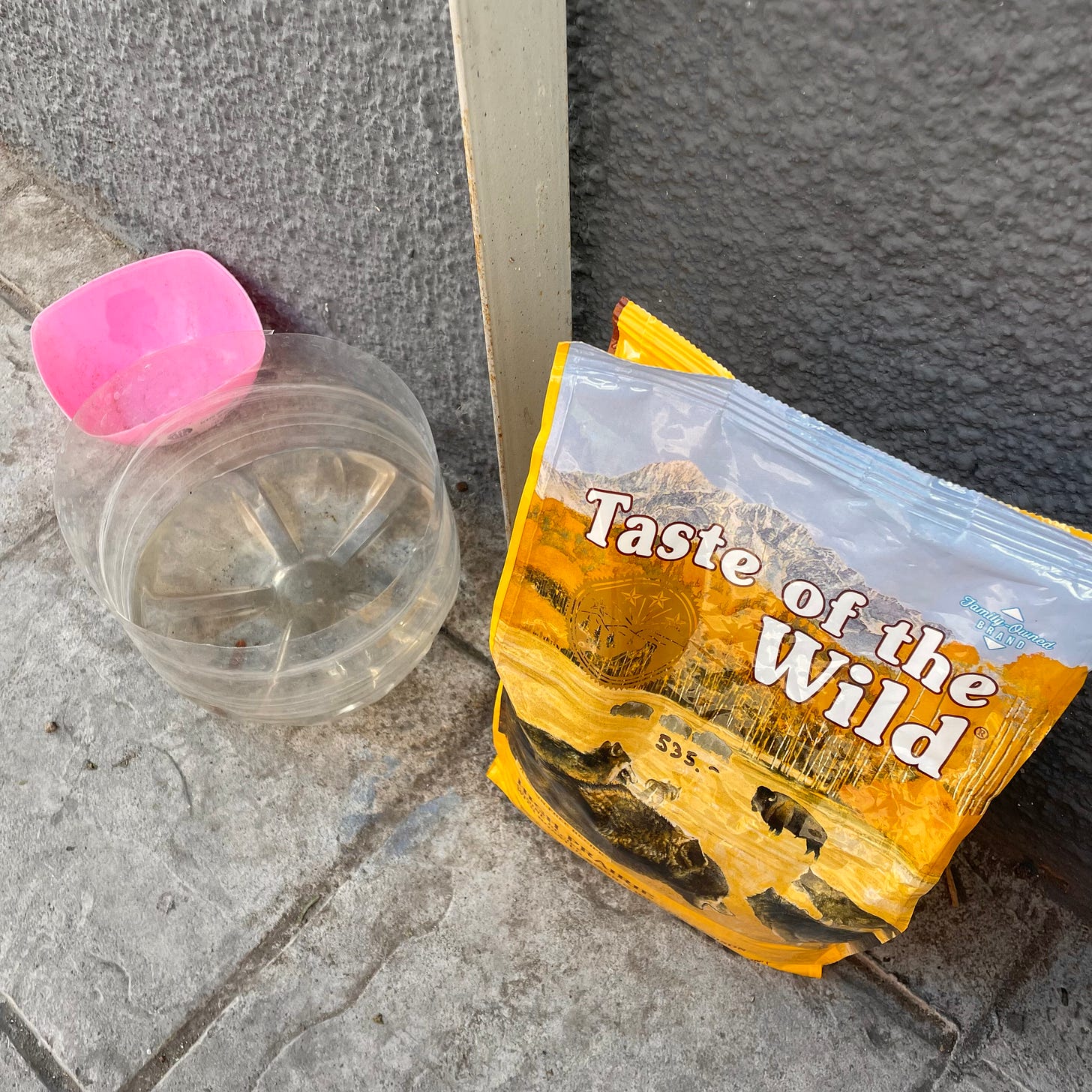

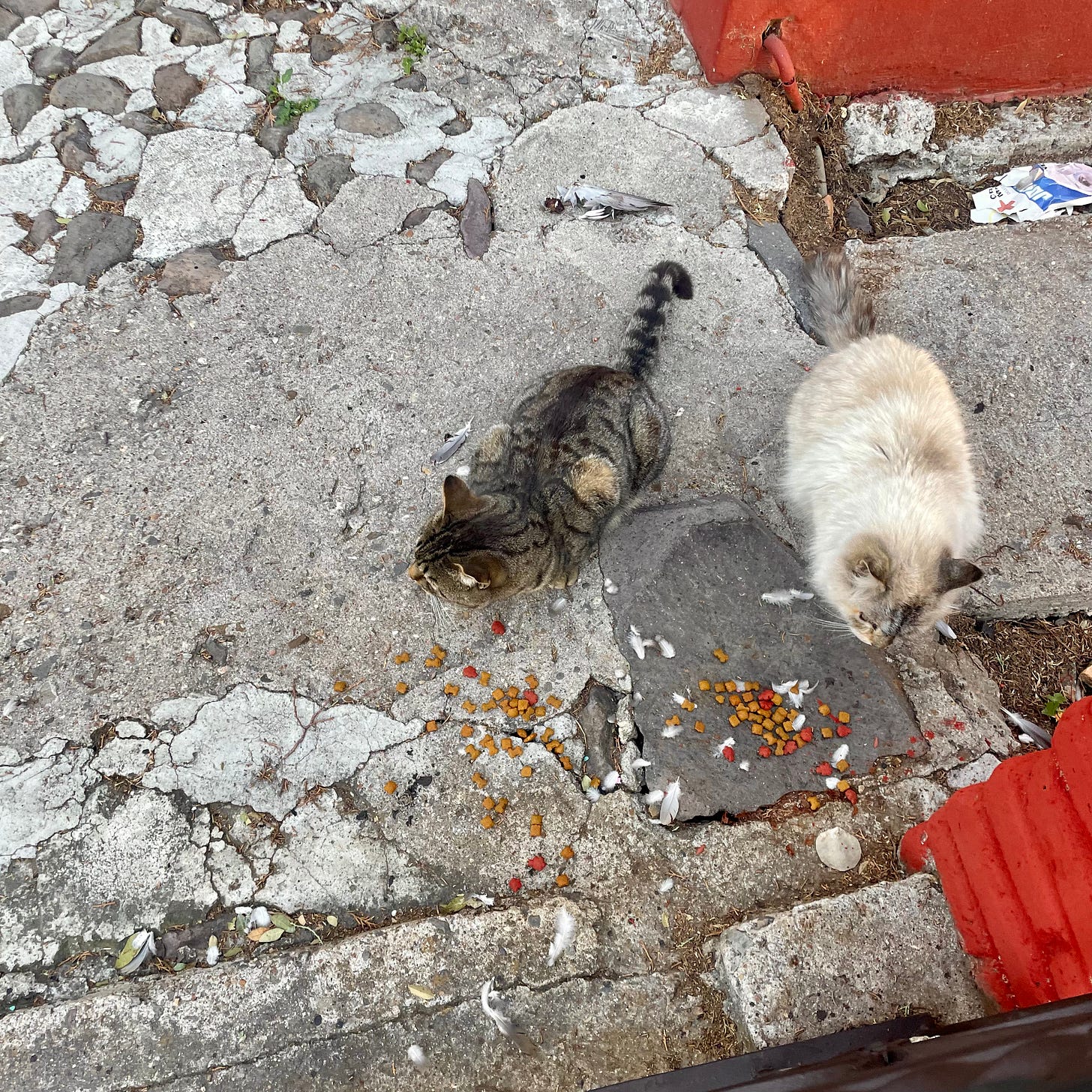
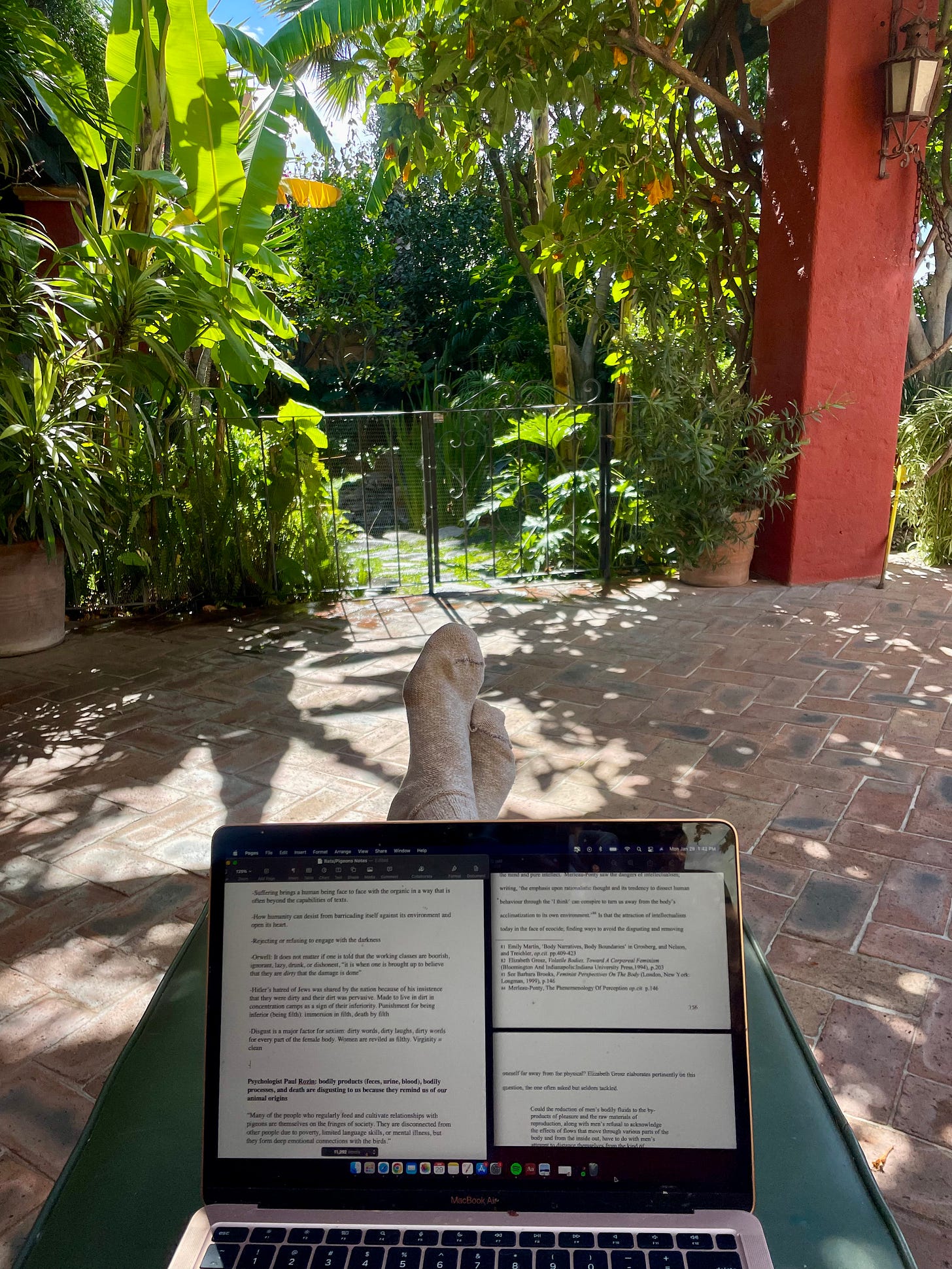
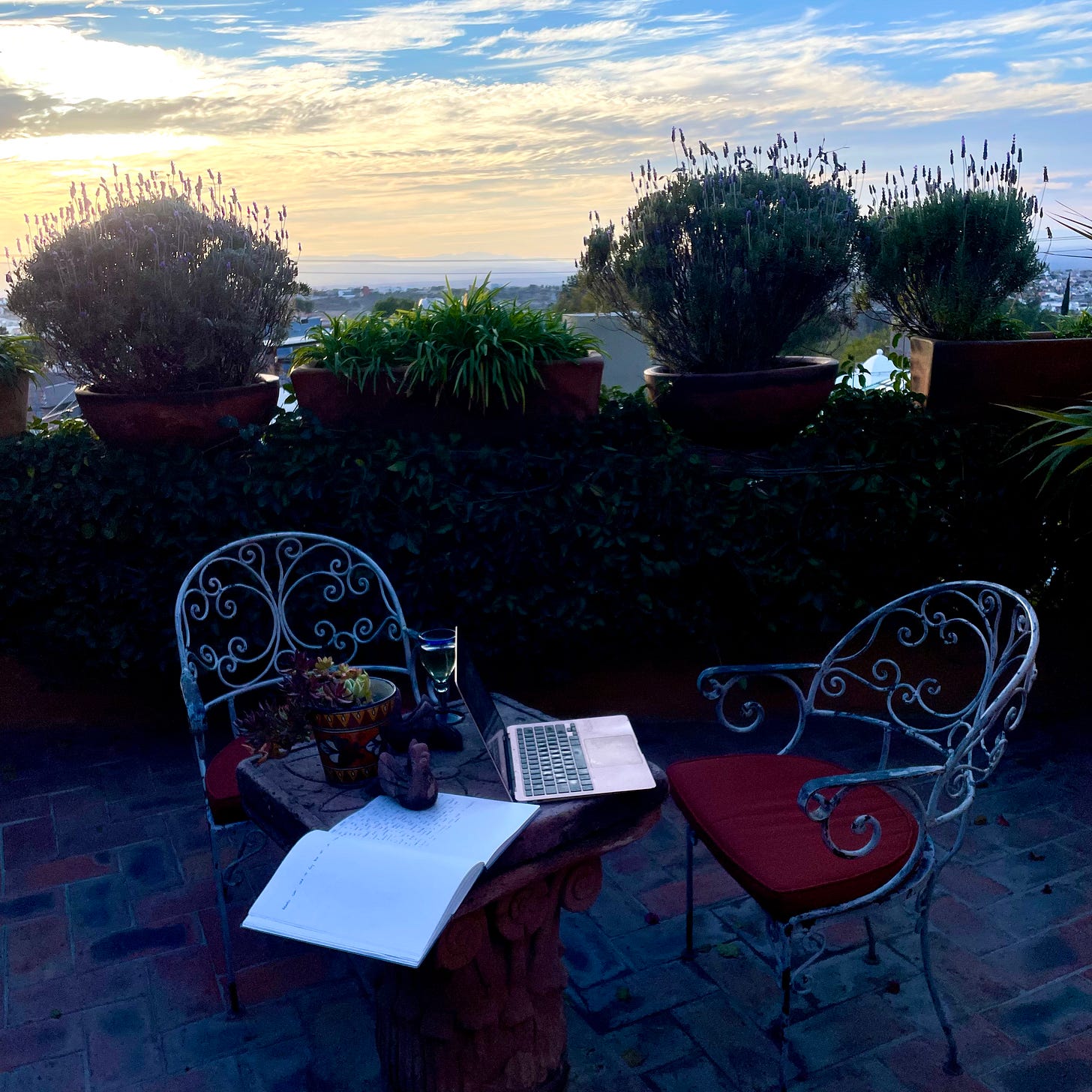
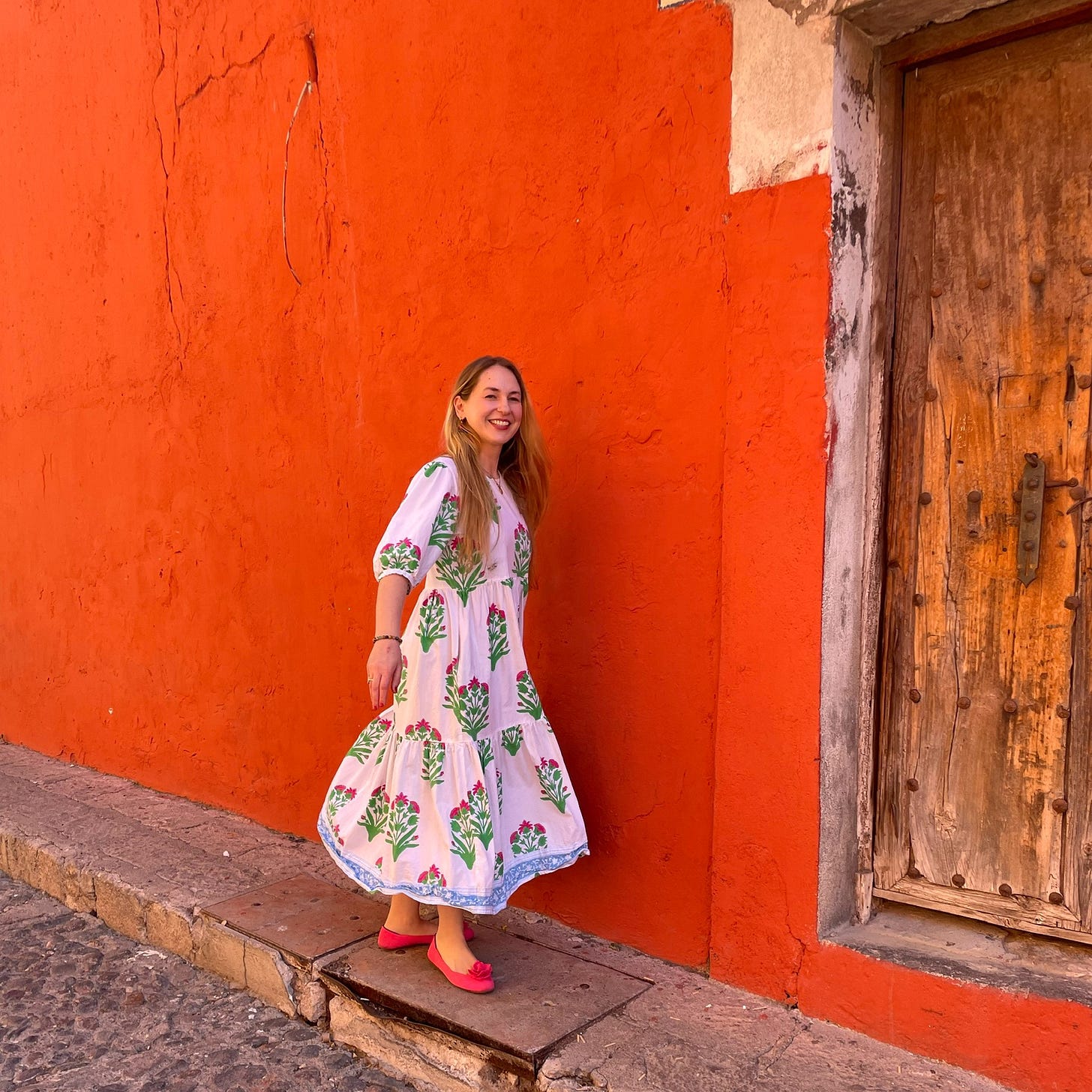
“Write at a small desk” is soooo true!! ⭐️ I noticed the ‘distance’ I have from my laptop mirrors the distance I feel toward the topic. Work emails — the further away, the better. Substack newsletters? My best ones have always come when I am curled up in bed (throwing my back out when I am done). See #1: the need for squats. Thank you Mari!!! 🌸🌷❤️🔥
Thank you for sharing all this valuable insight! It makes me understand more abt why certain things I write come across as "perfect" (aka so authentically me) and others feel fake or surface level. This essay made me think abt who I'm writing said perfect pieces to, and I realized it was my inner child. It's amazing how I've been trying to soothe her all these years with my writing, even before therapy taught me abt inner child work. Gosh, humans are so fascinating lol. I haven't written in a while, but this new insight is stirring my creative juices again✍️📖 As usual, thank you for doing what you do - it makes me feel so seen❤️